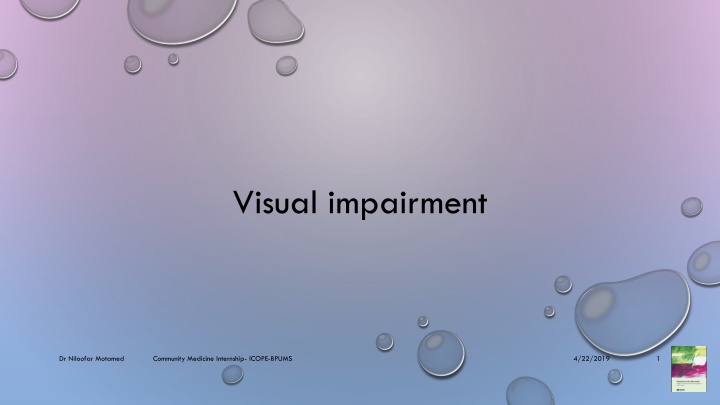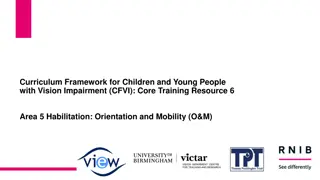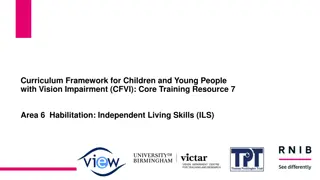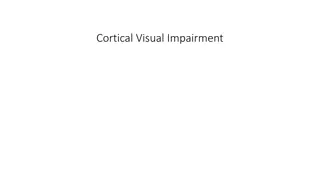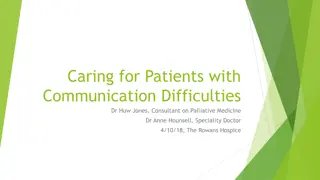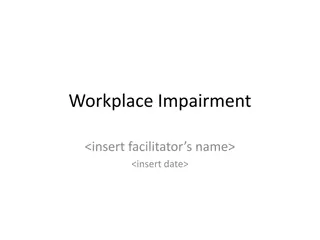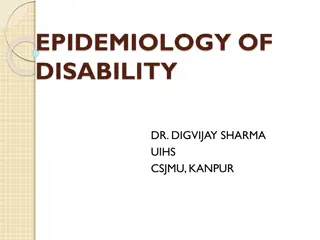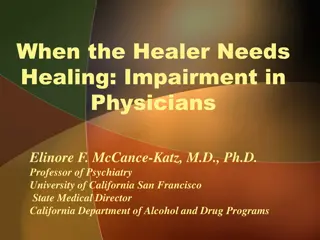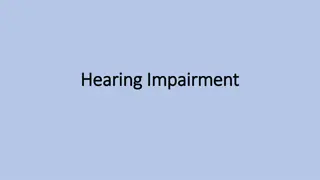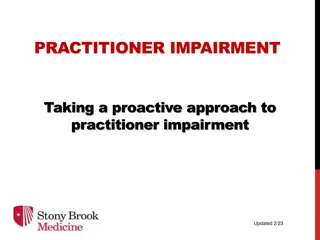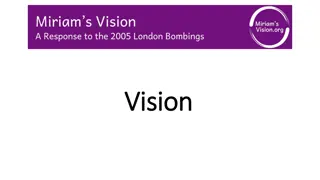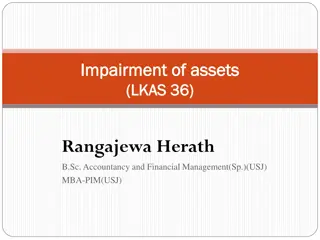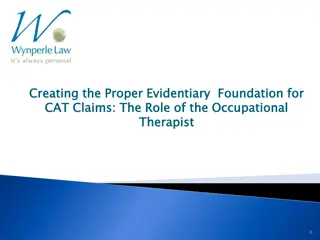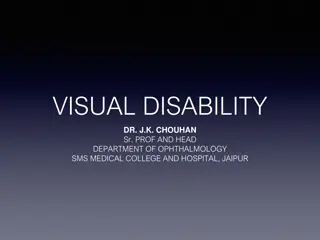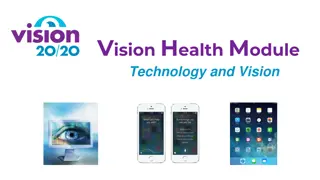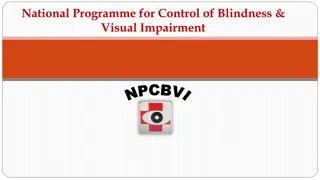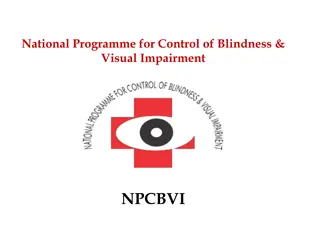Visual impairment
"Dr. Niloofar Motamed's community medicine internship focusing on visual impairment aims to address the health needs in this area. With a specialization in this field, the program provides valuable insights and practical experience to address the challenges faced by individuals with visual impairments. The internship at BPUMS aims to enhance skills in managing and supporting those with visual impairments within the community health setting, contributing towards better overall healthcare outcomes."
Download Presentation

Please find below an Image/Link to download the presentation.
The content on the website is provided AS IS for your information and personal use only. It may not be sold, licensed, or shared on other websites without obtaining consent from the author.If you encounter any issues during the download, it is possible that the publisher has removed the file from their server.
You are allowed to download the files provided on this website for personal or commercial use, subject to the condition that they are used lawfully. All files are the property of their respective owners.
The content on the website is provided AS IS for your information and personal use only. It may not be sold, licensed, or shared on other websites without obtaining consent from the author.
E N D
Presentation Transcript
Visual impairment Dr Niloofar Motamed Community Medicine Internship- ICOPE-BPUMS 4/22/2019 1
Importance Ageing is frequently associated with loss of vision that limits physical performance and activities in daily life. Over half of older adults with impaired vision experience improvements through non-invasive methods, mainly corrective lenses. Some 79% of people over 60 years of age and 90% of people over 70 have cataract, representing the single- most important cause of vision loss. These people go back to full visual function with cataract surgery. Yet many older people living in low-income countries have never had even an eye examination, with little opportunity for accessing eye-care services. Community case finding and the immediate provision of eye care or assisted referral for cataract surgery could improve physical capacity and functional ability in older people. 4/22/2019 2 Dr Niloofar Motamed Community Medicine Internship- ICOPE-BPUMS
Recommendation 3 Older people should receive routine screening for visual impairment in the primary care setting, and timely provision of comprehensive eye care. Quality of the evidence: low Strength of the recommendation: strong 4/22/2019 3 Dr Niloofar Motamed Community Medicine Internship- ICOPE-BPUMS
Considerations for recommendation 3 At the primary health care level, visual screening can be performed using a Snellen chart to screen for visual acuity. It is important to improve public awareness and generate demand for services through regular community outreach activities. Promote case finding at the primary and community care settings, where health care personnel such as community health workers can be trained to screen for visual acuity. Establish comprehensive eye-care services, so that refraction services with the provision of suitable correction tools are available at the primary health care level. 4/22/2019 4 Dr Niloofar Motamed Community Medicine Internship- ICOPE-BPUMS
Considerations for recommendation 3 Specifically, provide spectacles that are new, of high quality, accessible and affordable in low- income settings. The most common causes of vision impairment in older people include presbyopia, cataract, glaucoma, diabetic retinopathy and age-related macular degeneration. Older people found to have a visual impairment should therefore be assessed for these medical conditions. 4/22/2019 5 Dr Niloofar Motamed Community Medicine Internship- ICOPE-BPUMS
Considerations for recommendation 3 Older people who have had diabetes for five years or more must be referred for an assessment with an ophthalmologist. Additionally, it is advisable that people who are at risk of glaucoma (including people of African descent and people with a positive family history), who are at risk of diabetes, or who have severe myopia undergo periodic assessment by an ophthalmologist. The WHO publication, Prevention of blindness from diabetes mellitus is available at http://www.who. int/diabetes/publications/prevention_ diabetes2006. 4/22/2019 6 Dr Niloofar Motamed Community Medicine Internship- ICOPE-BPUMS
Considerations for recommendation 3 Refer to eye-care practitioners or occupational therapists who have expertise in environmental modifications (working with colour and contrast in the environment of the person with low vision) and can teach activities of daily living and skills, such as washing clothes. The systematic review that identified three trials examining the effectiveness of expedited cataract surgery found substantial improvements in vision for older people who had undergone expedited surgery, compared with outcomes for people in the routine surgery or waiting list groups 4/22/2019 7 Dr Niloofar Motamed Community Medicine Internship- ICOPE-BPUMS
Rationale for recommendation 3 The use of screening as a stand-alone intervention was not warranted and that it should be combined with immediate provision of indicated eye care to improve the visual acuity of older people with visual impairment. 4/22/2019 8 Dr Niloofar Motamed Community Medicine Internship- ICOPE-BPUMS
